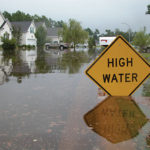(NAPSI)—When it comes to internal organs, hearts tend to get all the attention. But when your kidneys don’t work, the rest of you won’t work, either. That’s why now is a good time to show these two fist-sized organs on either side of your spine some love. It’s time to “Heart Your Kidneys.”
What Your Kidneys Do For You
Kidneys are vital organs that keep you alive. They play the powerful roles of filtering everything in your system, keeping your body clear of waste and toxins, balancing your internal fluids, releasing hormones that regulate blood pressure, and controlling the production of red blood cells, among other things. That’s a lot of responsibility, and kidneys live up to it 24/7 in order to keep your system running smoothly.
The Problem
Yet, many people aren’t paying attention to their kidney health. Twenty-six million Americans are affected by kidney disease today, and millions of them don’t even know they have it, says Kevin Longino, CEO of National Kidney Foundation and a kidney transplant patient himself. “There’s a myth that only old people get kidney disease but, really, it can affect anyone,” he adds. “We felt we needed to address prevention, and not just support for people who are already dealing with these issues. The ‘Heart Your Kidneys’ campaign is really our way of expanding the conversation from kidney disease to overall kidney health, which matters to everyone.”
Kidney health isn’t something to put off thinking about. When your kidneys stop functioning properly, you’re at risk for dialysis or needing a kidney transplant. The effects of kidney failure can be fatal. “Your kidneys are essential to keeping you alive and healthy,” says Longino. “They are powerful chemical factories working nonstop, and if they don’t, the effects are life threatening. Your kidneys help clean out everything in your body—if you think about your body like a machine, kidneys are just as important as the heart in terms of keeping the engine running.”
Certain factors can cause chronic kidney disease. People with diabetes and/or high blood pressure are at a higher risk, as are certain demographics such as African Americans, Hispanics and Asians. If you’re in one of these groups, it’s important to be diligent about maintaining your overall health, and to speak to your primary care physician about two simple tests (one blood, one urine) that can determine whether or not your kidneys are functioning properly.
What You Can Do For Your Kidneys
That said, kidney health is important even if you’re not part of a high-risk population. Fortunately, it’s easy to “Heart Your Kidneys” by staying informed and taking action toward a healthy lifestyle that helps protect them. Some of the most effective measures are also the easiest: Follow a balanced diet of fruits, vegetables, whole grains, lean meats and low-fat dairy; stay hydrated and minimize alcohol intake; exercise regularly and control your weight; reduce your salt intake; monitor your cholesterol levels; keep an eye on blood pressure; know your family’s medical history; and go in for annual physicals that include honest conversations with your doctor about your lifestyle and habits. These actions will have a positive effect on not just your kidneys, but your health overall.
“At the end of the day, awareness is key,” says Longino. “Everyone should care about his or her kidneys.” America, it’s time to show your kidneys a little love.
Learn More
For further information about kidney health, visit www.kidney.org or join the conversation at #heartyourkidneys.
On the Net:North American Precis Syndicate, Inc.(NAPSI)






